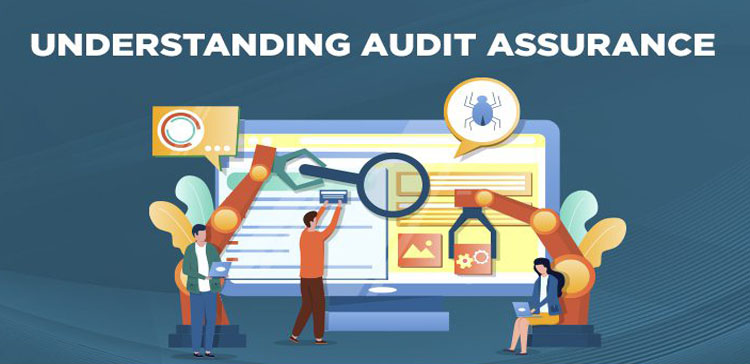
Audit Assurance
Audit assurance is a crucial aspect of financial reporting, providing stakeholders with confidence in the accuracy and reliability of financial statements.
Concept of audit assurance
In this article, we will delve into the concept of audit assurance, its importance, and the role it plays in maintaining transparency and accountability in the business world.
What is Audit Assurance?
Audit assurance refers to the process of evaluating and verifying financial records, systems, and processes to ensure the fairness, accuracy, and transparency of financial statements. It involves an independent examination conducted by qualified professionals known as auditors. The primary objective of audit assurance is to provide reasonable assurance to stakeholders that the financial statements present a true and fair view of the organization’s financial position and performance.
Importance of Audit Assurance:
Audit assurance is vital for maintaining the trust and confidence of investors, shareholders, lenders, and other stakeholders. It enhances the reliability of financial information, thereby facilitating informed decision-making. By conducting an independent and objective evaluation, auditors assess the effectiveness of internal controls, and compliance with accounting standards, and identify potential risks and irregularities.
Audit assurance also contributes to transparency and accountability within organizations. It encourages ethical behavior, reduces the risk of fraud, and promotes adherence to regulatory requirements. Moreover, audit assurance plays a significant role in enhancing the credibility of financial statements, which is essential for attracting investments and securing loans.
Components of Audit Assurance:
Audit assurance comprises several components that collectively contribute to the evaluation and verification process. These components include planning, risk assessment, internal control evaluation, substantive testing, and reporting.
1. Planning:
Auditors develop an understanding of the organization’s business, risks, and internal control environment to determine the scope and objectives of the audit.
2. Risk Assessment:
Auditors identify and assess potential risks that could affect the financial statements, allowing them to focus on areas with higher inherent risk.
3. Internal Control Evaluation:
Auditors evaluate the effectiveness of internal controls designed to safeguard assets, ensure accurate financial reporting, and promote operational efficiency.
4. Substantive Testing:
Auditors perform detailed testing of financial transactions, account balances, and supporting documentation to obtain sufficient evidence for their conclusions.
5. Reporting:
The auditor communicates their findings, conclusions, and opinions in an audit report, providing stakeholders with a comprehensive understanding of the financial statements’ reliability.
Conclusion:
Audit assurance plays a fundamental role in ensuring confidence, transparency, and accountability in financial reporting. By conducting an independent and objective examination, auditors provide stakeholders with reasonable assurance that the financial statements are reliable and free from material misstatements.
The importance of audit assurance lies in its ability to enhance decision-making, foster trust, and promote adherence to regulatory requirements. As businesses operate in increasingly complex environments, the need for robust audit assurance becomes even more critical. It is through audit assurance that organizations can showcase their commitment to integrity and financial stewardship, earning the trust and confidence of their stakeholders.
- Share this post
